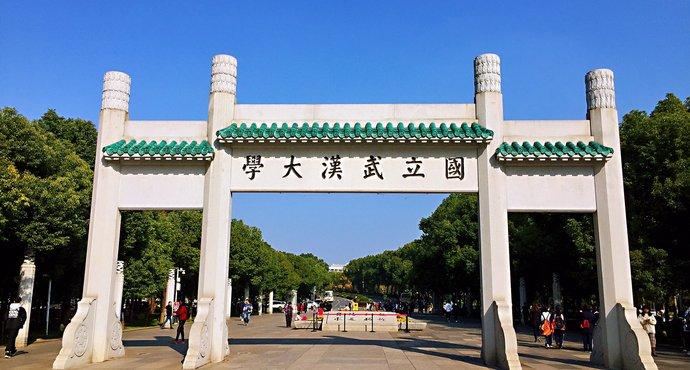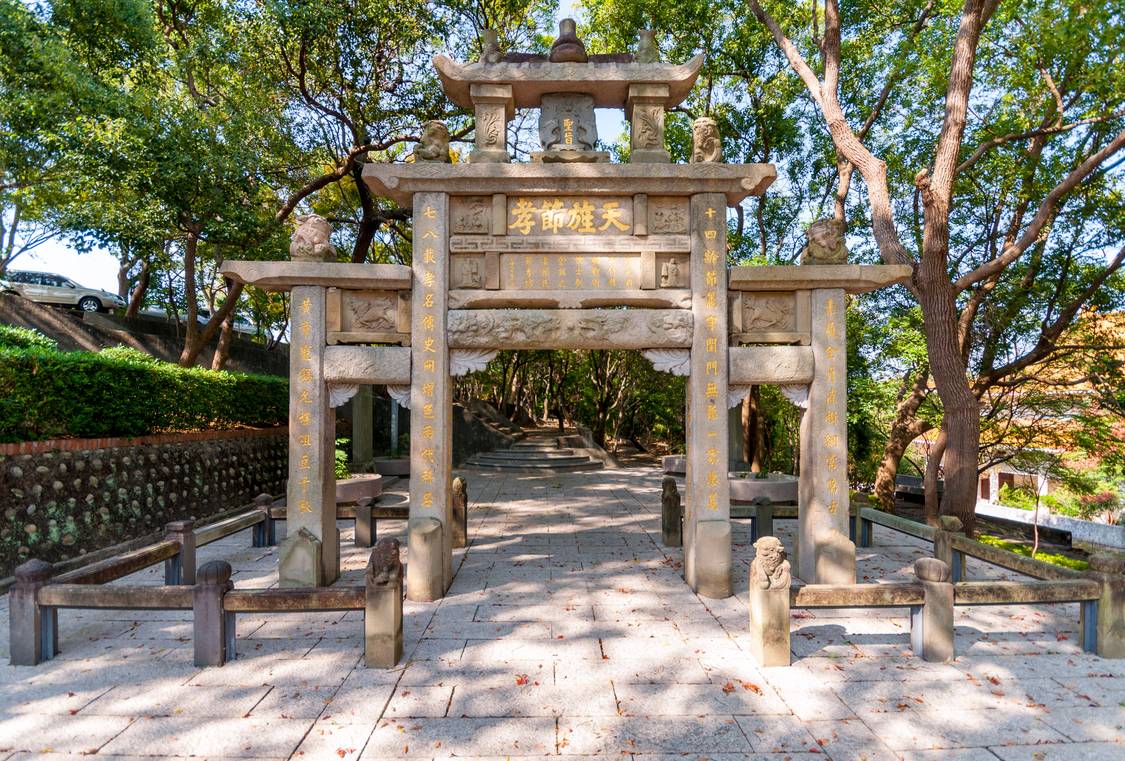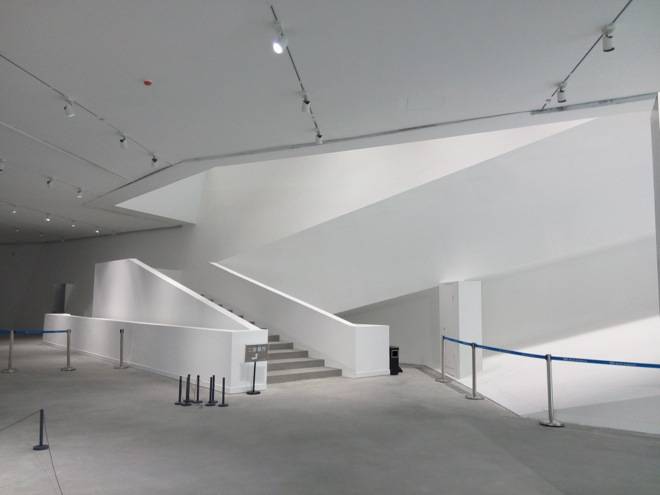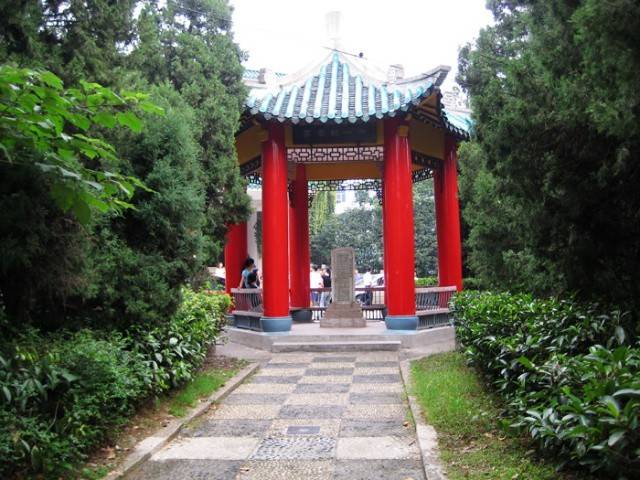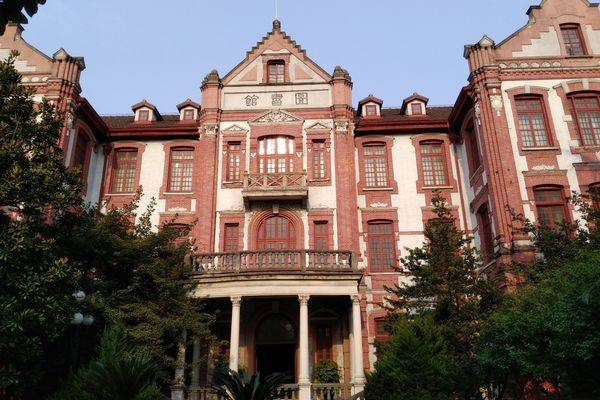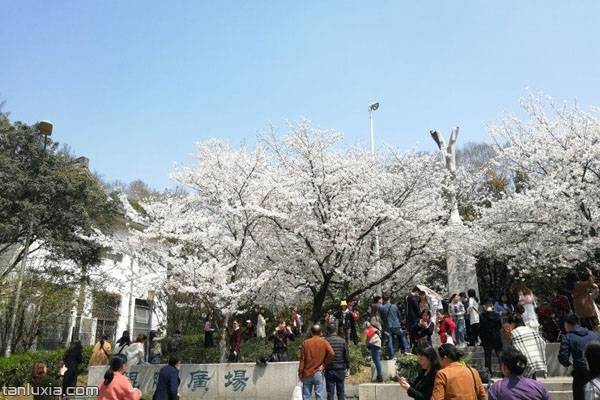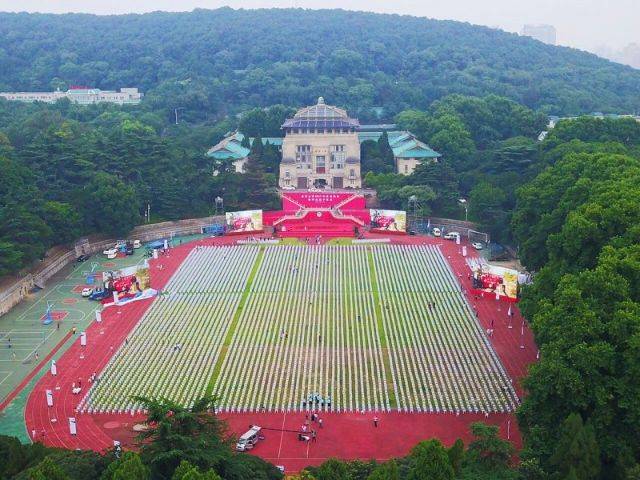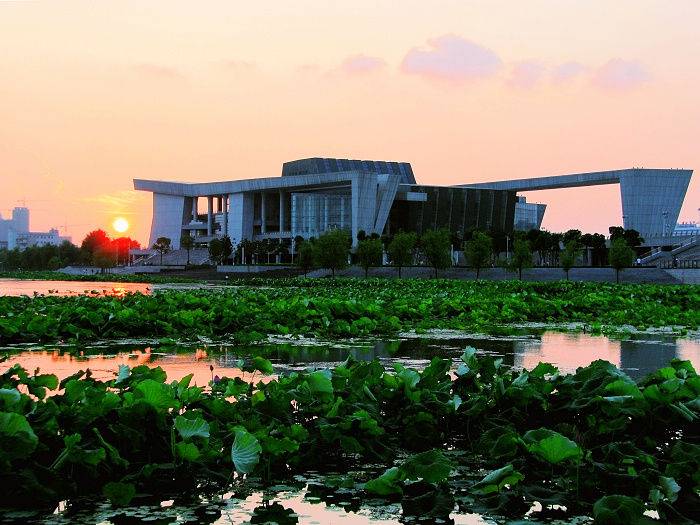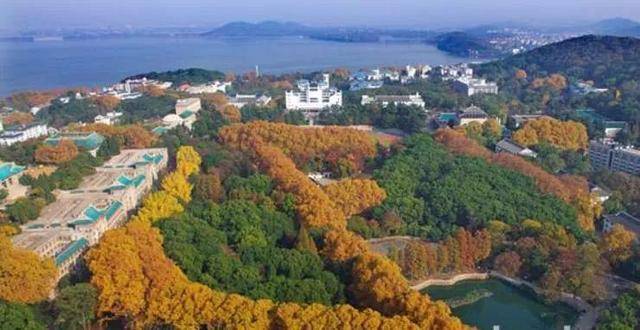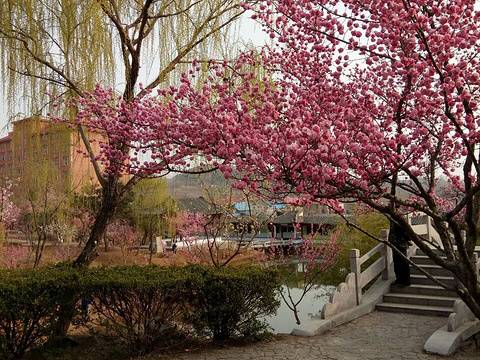Paifang
Paifang is the main gate, with 'National Wuhan University' written on the front and 'Liberal Arts, Science, Engineering, Agriculture, Medicine' on the back. It is considered unlucky to walk directly under the gate; instead, one should walk beside it because this is the 'Reconstruction Gate'. The original site of the 1933 Paifang was at Quanye Market, which is about a 20-minute walk from today's school gate.
Luojia Square
Luojia Square, also known as 'the big lawn in front of Teaching Building No. 5', is a place where people lie in the sun on good weather days. Students gather to discuss, faculty members walk their dogs, and some practice skateboarding. However, please note that the grass is quite fragile in spring, so try to avoid stepping on it.
Wanlin Art Museum
This is undoubtedly a great place for photography. The interior design is very simple, making it suitable for taking minimalist style photos. However, viewing the exhibitions is more important than taking photos. There are often high-quality exhibitions. You need to register with your ID card to enter, and students can use their campus cards. The observation deck on the third floor of Wanlin is also an excellent viewpoint! The lush Luojia Mountain and the intricately decorated buildings are all in full view.
Jian Lake
Jian Lake is also called Weiming Lake. It was renamed Jian Lake to avoid confusion with a certain northern university. Occasionally, there are fountains, and it is highly photogenic.
June 1st Memorial Pavilion
In 1947, the Kuomintang authorities broke into Wuhan University, shot and killed three unarmed students, and arrested a number of progressive teachers and students, an event known as the 'June 1st Massacre.' In August of the same year, progressive teachers and students of Wuhan University built the 'June 1st Massacre Memorial Pavilion' beside the gymnasium on campus. The pavilion faces south, stands 6.5 meters high, has a hexagonal pointed roof with green tiles and flying eaves, and is supported by six red lacquered round pillars.
Song Qing Gymnasium
Li Yuanhong, the President of the Republic of China, also known by his courtesy name Song Qing, particularly wished to be buried at Wuhan University after his death. However, his request was declined by the first president of the university, Wang Shijie. Nevertheless, Li Yuanhong's descendants donated 100,000 silver dollars to Wuhan University to build a gymnasium, which was named after his courtesy name.
Kunpeng Square
The square between the Second Teaching Building (English Self-Study Center) of the Arts and Sciences Department of Wuhan University and the Song Qing Gymnasium is named after the Kunpeng Fusion Sculpture at the center of the square. The monument is inscribed with 'The Northern Sea is vast and deep, the wings of the Kunpeng hang in the sky, soaring through the clouds for ninety thousand miles, and striking the water for three thousand miles.'
Old Dormitory, Cherry Blossom Castle, Cherry Top, Old Library
The eaves of the Old Dormitory have five super cute ridge beasts. 'Why is the first ridge beast looking back?' 'Because it can't help but look back, the other side of Luojia is also very beautiful.' Cherry Blossom Castle, Cherry Top, and the Old Library are also nearby.
Olympic Field
Olympic Field, also known as the September 12th Field because Chairman Mao reviewed the troops here on September 12th. For photo angles and poses, refer to Lei Jun.
Administrative Building
A landmark building.
Lingbo Gate Plank Road
It is a beautiful fall, transforming into a dreamlike scene for young boys and girls in the poetic and picturesque setting of East Lake.
Yue Lake
Wuhan Yue Lake Park is located by Yue Lake in Hanyang District, Wuhan City. It is named after the ancient Queyue City. During the Chenghua period of the Ming Dynasty, the Han River changed its course, and its main stream flowed into the Yangtze River north of Guishan, leaving behind Yue Lake. In ancient times, Yue Lake was 'about eight li long and one li wide,' with a water surface area of no less than 2 million square meters, covering a vast area. Yue Lake Park consists of five major scenic spots around Yue Lake: the north shore is the cultural and art center area; the south shore, near the Guqin Terrace, features an open-air stage square that can accommodate 8,000-10,000 people; the east side is the Xiaoyue Lake Peninsula; and the southwest side is close to Meizi Mountain. The design theme of Yue Lake's landscape is to create a theme park that showcases the cultural and historical heritage of the Yue Lake area, integrates leisure and entertainment, and features charming natural scenery.
Luojia Mountain, Shibadong
Luojia Mountain was formerly known as Luojia Hill. It is said that Wen Yiduo, while studying on the slopes of Luojia Hill, had a sudden inspiration and renamed it 'Luojia Mountain'. In the 1930s, 18 villas were built on the southern slope of Luojia Mountain and were allocated to the 'professors among professors'. Zhou Enlai and his wife Deng Yingchao once stayed in one of these villas, and Chiang Kai-shek also stayed at the nearby Banshan Lodge. The former residence of Guo Moruo is also located here. Today, when you climb Luojia Mountain, you can see those old buildings, even find the stone engraved by Chen Dongsheng, and you might even encounter a little fox named Luoluo!
Meiyuan
Meiyuan is mainly for viewing plum blossoms, but even if you visit when the plum blossoms are not in bloom, it's okay. When it's lunchtime, you can eat at the staff canteen or Meiyuan CBD.
Meicao
Meicao Open-Air Cinema is a tradition at Wuhan University. Even today, relatively new movies are shown every Friday night. The neatly arranged blue chairs are also a great spot for taking photos.
